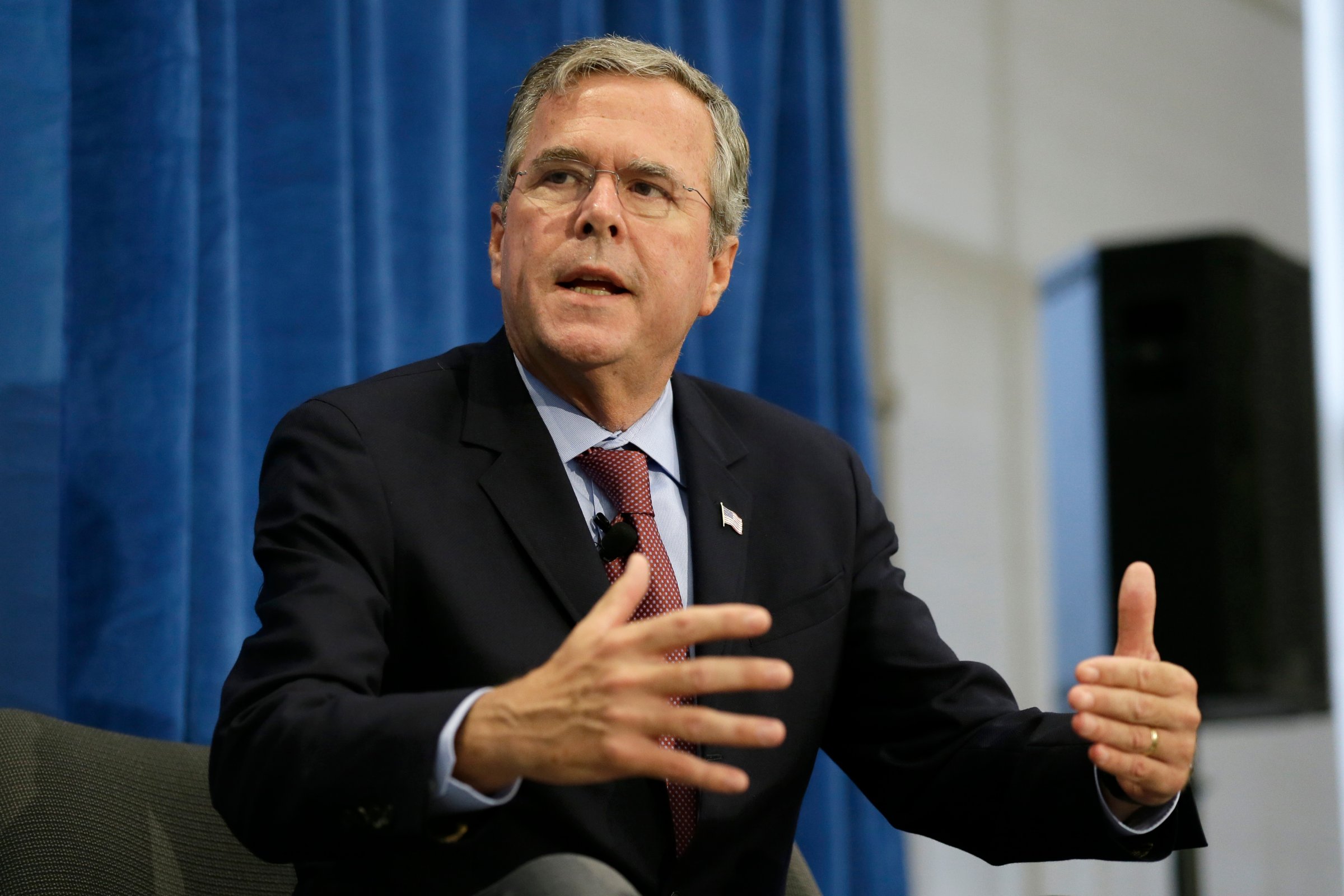
On Thursday, Jeb Bush refused to rule out the practice of torture if he were elected president. This was a departure from his remarks earlier this year when he said that his brother George W. Bush’s torture program was no longer necessary.
Bush’s indication that he would be open to using torture puts the 62-year-old Catholic convert at odds with Pope Francis, who has called for the universal abolition of torture, which he says is a “very grave sin.”
This isn’t Bush’s first public disagreement with Francis this summer. In June he said that Francis shouldn’t get too involved in the global climate change discussion because it risked politicizing religion. “I hope I’m not going to get castigated for saying this by my priest back home,” Bush said about Francis’s groundbreaking June 19 climate change encyclical letter. “But I don’t get economic policy from my bishops or my cardinals or my pope.” (Bush sang from a different hymnal just six years earlier: “As a public leader, one’s faith should guide you.”)
Bush’s disagreement with Francis on climate change wasn’t surprising, but his dissent on torture is. Bush has built much of his political career around his pro-life bonafides. Most notable was his decision to intervene in the case of Terri Schiavo, a Florida woman whose final years in a vegetative state stirred up a national conversation about the rights of persons who are incapacitated and when and how their lives should end if they leave behind no directives. At the time, Bush called the Schiavo case “the toughest issue” in his political career and one that “transcends politics and policies.”
Couldn’t one say the same of torture?
Bush should consider the words of Arizona Senator John McCain last December, who was a victim of torture during his time as a prisoner of war in Vietnam:
I know the use of torture compromises that which most distinguishes us from our enemies, our belief that all people, even captured enemies, possess basic human rights, which are protected by international conventions the U.S. not only joined, but for the most part authored. … This question isn’t about our enemies; it’s about us. It’s about who we were, who we are and who we aspire to be. It’s about how we represent ourselves to the world…. Our enemies act without conscience. We must not.
Conscience. This explains why Barack Obama banned forms of interrogation torture in 2009. And this must be the reason that Jeb Bush says ‘no’ to the practice today.
In the Gospel of Matthew, Jesus tells us to love our enemies and to pray for those who persecute us. In a post-9/11 world where violence, terrorism, and war run rampant, such ideas perhaps seem a bit Pollyannaish.
So if that doesn’t compel Bush to reconsider, perhaps this does: Torture doesn’t work. As a man who promises to take Washington “out of the business of causing problems,” surely he can see continuing a ban on the ineffective and immoral practice of torture is a perfect way to help fulfill that lofty ideal.
More Must-Reads From TIME
- The 100 Most Influential People of 2024
- The Revolution of Yulia Navalnaya
- 6 Compliments That Land Every Time
- What's the Deal With the Bitcoin Halving?
- If You're Dating Right Now , You're Brave: Column
- The AI That Could Heal a Divided Internet
- Fallout Is a Brilliant Model for the Future of Video Game Adaptations
- Want Weekly Recs on What to Watch, Read, and More? Sign Up for Worth Your Time
Contact us at letters@time.com